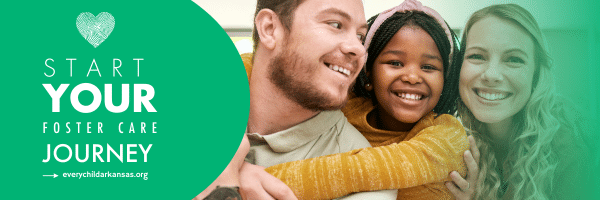Stories
Subscribe to Our NewsletterFictive Kin 101

The decision to become a foster parent is not one that is taken lightly, and many individuals would never think that it is something they are capable of. Now think about taking in your own child’s friend from school, a kid you coach in little league football or even the kid from down the street! That decision just got a lot easier. This type of fostering is called fictive kin. Fictive kin is when a close family friend, teacher, coach or even a neighbor steps in to take temporary guardianship over a child in foster care. Children benefit greatly from these type of placement homes.
Fictive kin play a crucial role in the foster care system, as they can offer a sense of stability and familiarity to children who are placed in care. Because of their existing relationship with the child, these individuals can help maintain important connections and provide a more comfortable and nurturing environment during a challenging time. This approach helps maintain a sense of continuity and minimizes the trauma associated with being removed from one’s home. Fictive kin arrangements can offer children a safe and supportive haven during a period of uncertainty.
Fictive kin placements offer several other significant benefits to both the child and family. These benefits include:
- Continuity of Relationships: Fictive kin placements allow children to maintain important relationships with extended family members, friends, teachers, or others who are already a part of their lives. This continuity can provide emotional stability.
- Cultural and Ethnic Continuity: Placing a child with fictive kin who share the same cultural or ethnic background can help preserve the child’s cultural identity and heritage, which is important for their sense of self.
- Reduced Disruption: Moving a child to a new, unfamiliar environment can be disruptive and stressful. Fictive kin placements minimize this disruption by keeping the child in a familiar setting. This can reduce the trauma and anxiety associated with being removed from their biological parents.
- Supportive Relationships: Fictive kin caregivers often have a strong emotional investment in the child’s well-being. They are more likely to be highly motivated to provide the care and support needed for the child’s growth and development.
- Lower Risk of Placement Disruption: Fictive kin placements may have a lower risk of disruption (placement breakdown) compared to placements with unrelated foster parents, as the child is in a familiar environment with people they know well.
- Legal and Custody Considerations: In some cases, fictive kin may already have established legal relationships with the child, such as legal guardianship or custody, which can simplify the legal aspects of the placement.
While fictive kin placements offer numerous benefits, it’s important to note that these placements still require oversight and support from child welfare agencies to ensure the safety and well-being of the child. Like any placement, they can have challenges, and agencies provide resources and assistance to fictive kin caregivers as needed. Check out Tayler’s story below. Facing the prospect of spending her senior year at a new school and in a different city, Tayler learned how fictive kin could help her finish her high school journey in her hometown.
